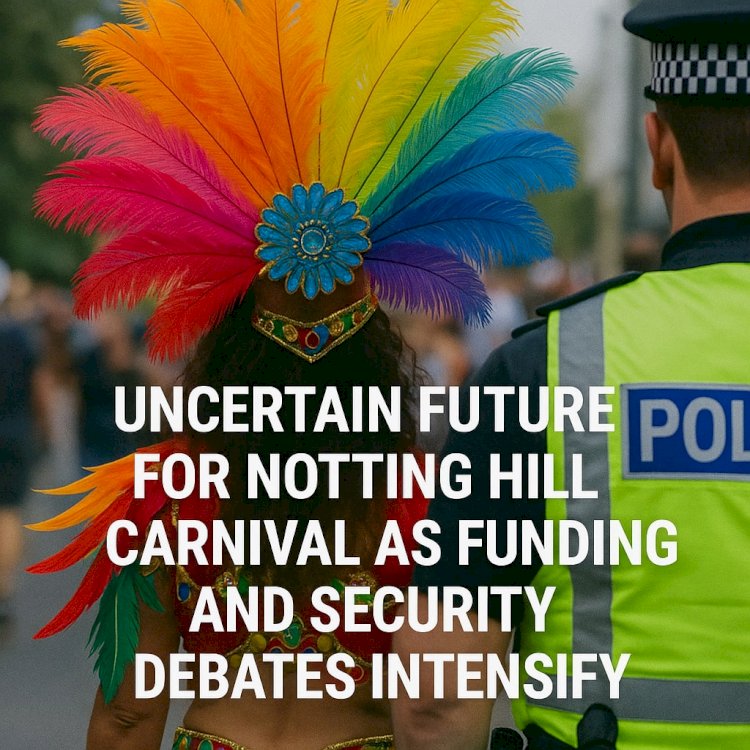Uncertain Future for Notting Hill Carnival as Funding and Security Debates Intensify

August 25, 2025 — The Notting Hill Carnival returned to the streets of West London this year in a blaze of color, music, and culture. Yet behind the celebrations, serious questions linger about whether Europe’s largest street festival can survive mounting financial and logistical challenges.
Financial Strain
The 2025 edition almost didn’t happen. Organizers revealed that a last-minute funding package from local councils was the only thing that prevented cancellation. With annual costs climbing into the millions, they warn that relying on emergency support is unsustainable and that a long-term funding model is urgently needed.
Security Concerns
Rising policing costs have added to the strain. This year saw the deployment of advanced surveillance tools, including live facial recognition, sparking criticism from civil rights advocates who argue that such measures compromise the carnival’s open and inclusive spirit. Organizers insist that safety remains a priority but fear that heavy-handed security risks alienating attendees.
Cultural Significance
Supporters stress that the carnival is more than just a party — it is a living celebration of Caribbean heritage in Britain. High-profile voices, including global sports stars and community leaders, have warned against proposals to relocate or commercialize the event, arguing that such changes would erode its authenticity.
Pressure on Participants
Even long-standing participants such as food vendors are struggling. Inflation, higher supplier costs, and rising insurance and staffing expenses have forced some to scale back or withdraw altogether, threatening one of the festival’s most beloved traditions: its food culture.
The Road Ahead
Without sustainable funding and a balanced approach to security, the carnival’s future remains fragile. For many, preserving the event is not simply about entertainment but about safeguarding a cornerstone of cultural identity and community resilience in London.

 content-team
content-team 


















